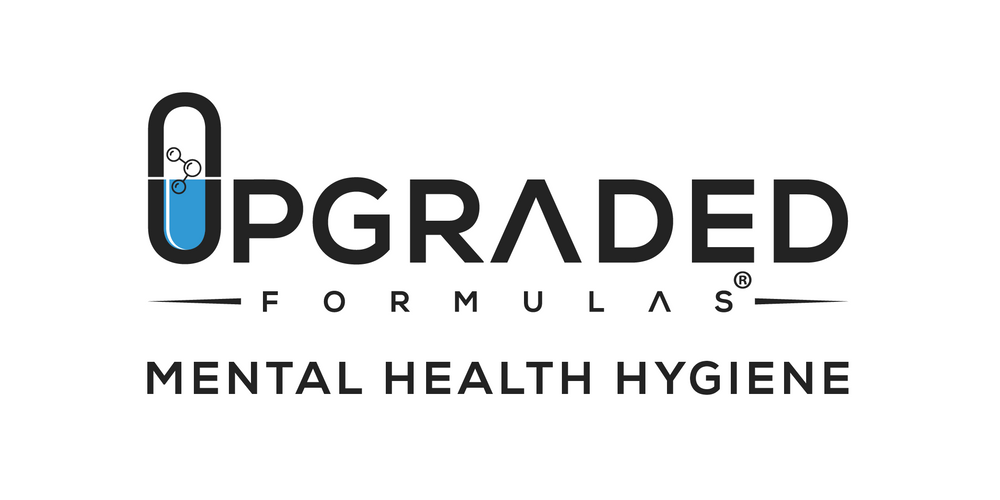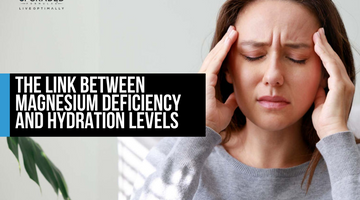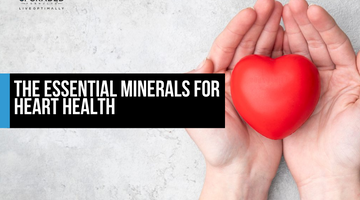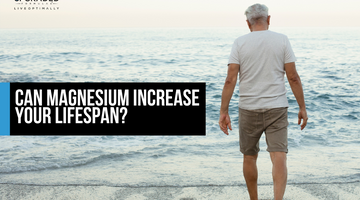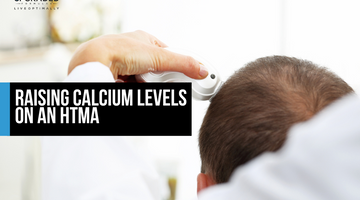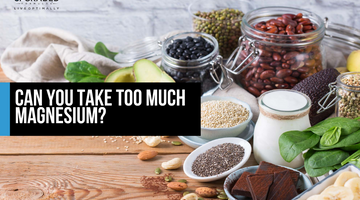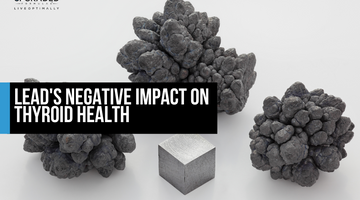heart health
- All
- abdominal pain
- absorption
- acetyl
- achy joints
- acid reflux
- acne
- activated charcoal
- acute toxicity
- adaptogens
- adhd
- adolescent
- adrenal
- adrenal adrenal glands
- adrenal fatigue
- adrenal fatigue stress
- adrenal glands
- adrenal health
- adrenal ratio
- adrenals
- aging
- agitation
- alcohol
- aldosterone
- allergies
- allergy
- alopecia
- aluminum
- alzheimer's
- amino acids
- andropause
- anemia
- anger
- anorexia nervosa
- anti bacterial
- anti fungal
- anti viral
- antiaging
- antifungal
- antimicrobial
- antimony
- antioxidant
- antiviral
- Anxiety
- anxious
- appetite
- are there side effects to magnesium
- aresenic
- Arginine
- arsenic
- arsenic toxicity
- arthritis
- ascorbic acid
- asthma
- athletes
- autism
- autoimmunity
- b vitamins
- b1
- b12
- b6
- bacteria
- bacterial infection
- bad habits
- bariyum
- barton scott
- beard
- benefits of magnesium
- benefits of magnesium supplements
- best mineral supplements
- Best self
- best supplements
- bi polar
- bi polar disorder
- bile
- bile production
- Biohacking
- biosynthesis
- bipolar disorder
- bismuth
- bitters
- bleeding gums
- blindness
- bloating
- blood cells
- blood circulation
- blood flow
- blood glucose
- blood pressure
- blood sugar
- blood sugar dysregulation
- blood sugar imbalance
- blood sugar insulin
- blue light
- body fat
- bone broth
- bone density
- bone health
- bone mineralization
- bones
- Books
- boric acid
- boron
- bowl pattern
- brain fog
- brain health
- breast pain
- breathwork
- bromide
- bromine
- burnout
- ca:k ratio
- ca:mg
- cadmium
- cadmium toxicity
- caffeine
- calcium
- calcium deficiency
- calcium fluoride
- calcium shell
- calm
- calming
- calories
- camdium
- Can magnesium help with anxiety
- cancer
- candida
- carb metabolism
- carbohydrates
- carbs
- cardiovascular disease
- cardiovascular health
- cartilage
- cataracts
- cell growth
- cell permeability
- cellular hypothyroidism
- cellulite
- ceruloplasmin
- charcoal
- chelation therapy
- Chelator
- chemical toxicity
- children
- chloride
- chlorine
- cholesterol
- choline
- chromium
- chromium deficiency
- chromium toxicity
- chronic fatigue
- chronic stress
- chronic toxicity
- cigarettes
- circulation
- clinical trial
- cobalt
- cobalt toxicity
- coffee enema
- coffee enemas
- cognition
- cognitive function
- cold
- collagen
- concentration
- conjunctivitis
- constipation
- copper
- copper deficiency
- copper dysregulation
- copper toxicity
- core minerals
- coronary heart disease
- coronavirus
- covid
- covid 19
- cramps
- cramps constipation
- cravings
- cutting hair
- cyanocobalamin
- cystic fibrosis
- cysts
- dairy
- dehydration
- dementia
- dental enamel
- Depression
- detox
- detoxification
- detoxing
- diabetes
- diabetes blood sugar dysregylation
- diarrhea
- diet
- digestion
- digestive enzymes
- digestive health
- digestive issues
- dizziness
- dna synthesis
- does magnesium help with anxiety
- drugs
- dry brushing
- dry eyes
- dry hair
- dry mouth
- dry skin
- dysmenorrhea
- Dyspareunia
- eating better
- electro magnetic fields
- electrolytes
- electrolytes blood pressure
- emf
- emfs
- emotional
- Emotional health
- emotions
- emunctory organs
- endocrine
- Endometriosis
- enema
- energy
- enzyme function
- epilepsy
- estrogen
- estrogen dominance
- exercise
- exfoliation
- eye health
- eye redness
- faitgue
- families
- FAQ
- fast oxidation
- fast oxidizer
- Fasting
- fat
- fat distribution
- fat metabolism
- fatigue
- fe:cu ratio
- fertility
- fever
- Fiber
- fluid balance
- fluoride
- fluorine
- Fluorosis
- focus
- folate
- follicle devlopment
- food poison
- forms of magnesium
- fruit
- fulvic acid
- functional labs
- functional testing
- fungal
- fungal infections
- fungus
- gall bladder
- gallstones
- ginseng
- glaucoma
- glucagon
- gluconeogenisis
- glucose
- glutathione
- glycogen
- glycolisis
- good habits
- grapeseed extract
- grave's disease
- green tea
- grey hair
- greying
- gut health
- h.pylori
- habits
- hair
- hair analysis
- hair color
- hair health
- hair loss
- hair loss. hair growth
- hair test
- hair test kit
- hair testing
- hair tissue mineral analysis
- halogens
- hangry
- hashimoto's
- hashimotos
- headaches
- health
- Health and wellness
- heart attack
- heart disease
- heart failure
- heart health
- heavy metal
- heavy metal detox
- heavy metal toxicity
- heavy metal toxicity analysis
- heavy metals
- heavy metals quiz
- high blood pressure
- high blood sugar
- high ca:mg ratio
- high calcium:magnesium ratio
- high cholesterol
- high copper
- high estrogen
- high nickel
- histamine
- holistic
- hormonal imbalances
- hormone regulation
- hormones
- hot flashes
- how long does magnesium take to work for anxiety
- how much magnesium should I take for anxiety
- htma
- hunger
- hydration
- hydration levels
- hydrochloric acid
- Hydrofluosilicic Acid
- hyperactivity
- hyperglycemia
- hyperlgycemia
- hypertension
- hyperthyroid
- hyperthyroidism
- hypoglycemia
- hypotension
- hypothyroid
- hypothyroidism
- immune health
- immune system
- immunity
- improve sleep
- infection
- infections
- infertility
- inflammation
- injuries
- insomnia
- insulin
- insulin resistance
- intestines
- iodide
- iodine
- iodine deficiency
- iodine loading test
- iodione patch test
- ionic mimicry
- iron
- iron benefits
- iron deficiency
- iron metabolism
- iron overload
- iron recycling system
- is magnesium good for anxiety
- japan
- joint health
- joint pain
- joints
- kidney disease
- kidneys
- kids
- l carnitine
- L pattern
- lead
- libido
- life and death ratio
- lifestyle ratio
- ligaments
- light
- liquid iodine
- lithium
- live optimally
- liver
- liver cancer
- liver cleanse
- liver detox
- liver disease
- liver health
- liver thyroid
- long hauler
- long haulers syndrome
- loose stool
- low blood pressure
- low blood sugar
- low immune system
- low magnesium
- low testosterone
- low zinc
- lupus
- lyme
- lymph
- lymphatic system
- m
- maca
- magnesium
- magnesium and sleep
- magnesium benefits
- magnesium deficiency
- magnesium doses
- magnesium for anxiety
- magnesium for insomnia
- magnesium for sleep
- magnesium levels
- magnesium supplement
- magnesium supplements
- manganese
- manganese deficiency
- manganese toxicity
- mania
- medication
- meditation
- melatonin
- memory
- men's health
- men's health bundle
- menopause
- menstrual cramps
- mental clarity
- mental disorder
- mental health
- mental health disorder
- mental health disorders
- mental health hygiene
- mercury
- mercury toxicity
- Metabolic health
- metabolic type
- metabolic typing
- metabolism
- metallothionein
- methionine
- methylcobalamin
- migraines
- mineral antagonists
- mineral balancing
- mineral deficiency
- mineral imabalces
- mineral imbalances
- mineral levels
- mineral rich foods
- mineral synergists
- mineral testing
- minerals
- mold
- mold toxicity
- molybdenum
- Mood
- mood disorders
- most accurate hair analysis testing
- most bioavailable mineral supplements
- most important supplements
- msod
- mthfr
- muscle cramps
- muscle function
- muscle gain
- muscle mass
- muscle soreness
- muscle spasms
- myelin
- na:k
- na:k ratio
- na:mg
- na:mg ratio
- nafld
- nails
- nano minerals
- nausea
- nerve function
- nerves
- nervous system
- nervous system muscle spasms
- nervousness
- new years
- new years resolutions
- nickel
- nickel toxicity
- nicotine
- night sweats
- nitric oxide
- non alcoholic liver disease
- not living your truth
- numbness
- nutrient deficiencies
- nutrition
- Nutritional deficiencies
- obesity
- oral health
- organ meats
- osteoarthritis
- osteoporosis
- oxalates
- oysters
- ozempic
- pain
- pancreatic enzymes
- parasites
- parathyroid hormone
- pathogens
- peak thyroid
- penumonia
- pepsin
- period
- peruvian ginseng
- pH balance
- phosphorus
- phosphorus deficiency
- physical health
- pituitary
- pnacreas
- podcast
- poly cystic ovarian syndrome
- poly cystic ovaries
- poor sleep
- potassium
- potassium deficiency
- potassium thyroid
- potatoes
- pregnancy
- pregnant women
- probiotics
- processing emotions
- progesterone
- prostate
- protein
- protein metabolism
- pubic hair
- purines
- pyrdoxine
- pyridoxine
- pyruvate kinase
- quiz
- radiation
- radioactivity
- reasons you can't sleep
- recovery
- red blood cells
- red light therapy
- reduce stress
- reproductive health
- resolutions
- rest
- retinol
- reverse L pattern
- rheumatoid arthritis
- rosacea
- rubidium
- rubidium deficiency
- sadness
- salt
- sarcopenia
- sauna therapy
- scalp hair
- schizophrenia
- science
- seizures
- selenium
- selenium deficiency
- serotonin
- shilajit
- silica
- skin
- Sleep
- slow metabolism
- slow oxidizer
- smoking
- sodium
- sodium deficiency
- sodium fluoride
- sodium:potassium ratio
- sour foods
- sperm health
- spring detox
- step up pattern
- stimulants
- stomach
- stomach acid
- stomach acidity
- strength
- strep
- stress
- stroke
- sugar
- suicide
- sulfur
- supplements
- sympathetic dominance
- sympathetic nervous system
- taking magnesium
- technology
- teenagers
- temperature
- temperature regulation
- testing
- testosterone
- testosterone upgraded t
- thanksgiving
- Theobromine
- thiamine
- thirst
- thyroid
- thyroid health
- thyroid issues
- tin
- tingling
- tissue oxygenation
- titanium
- tooth enamel
- total upgrade
- toxicity
- toxicity quiz
- toxins
- trace minerals
- trauma
- tumors
- type 2 diabetes
- type of hair
- types of magnesium
- under arm hair
- uograded zinc
- upgraded boron
- upgraded calcium
- upgraded copper
- upgraded cramp relief
- Upgraded Iodine
- Upgraded Iron
- upgraded magnesium
- upgraded memory
- upgraded metabolism
- upgraded mood
- Upgraded Selenium
- Upgraded Sugar Support
- Upgraded T
- upgraded zinc
- uranium
- uric acid
- vagus nerve
- vanadium
- viral
- viral infections
- virus
- viruses
- vision changes
- vitality ratio
- vitamin c
- vitamin a
- vitamin b1
- vitamin b12
- vitamin b3
- Vitamin B6
- vitamin c
- vitamin d
- vitamin d deficiency
- vitamin e
- vitamin k2
- vitamin supplements
- vitamins
- vomiting
- water
- water retention
- weakness
- weight gain
- weight loss
- well-being
- what are the benefits of taking magnesium
- what should you not take with magnesium
- When should I take my magnesium
- which form of magnesium is best for anxiety
- white hair
- who can do hair tetsing
- who needs magnesium
- who should not take magnesium
- wound healing
- yeast infections
- yoga
- zinc
- Zinc and copper balance
- zinc deficiency
- zinc supplements
- zinc.
The Link Between Magnesium Deficiency and Hydration Levels
Have you ever experienced dehydration so acutely that your skin feels parched, your mouth resembles a barren landscape, and your hands and legs begin to resemble a flaky autumn leaf? It's as though every step you take echoes the arid paths of the Sahara Desert.
The Essential Minerals for Heart Health
For many individuals, heart health is often oversimplified to the mantra of "exercise more, eat less cholesterol, and limit your salt intake." While these pieces of advice do hold some value, they barely scratch the surface of the broader and often under-explored intricacies of heart health. More importantly, this standard advice usually neglects one critical aspect of overall cardiovascular health: the central role of essential nutrients, particularly minerals like vitamin E, in maintaining a healthy heart.
Magnesium Supplements: How Long Until I See Results?
Magnesium is an essential mineral that is crucial in many bodily functions. From supporting heart health to promoting bone density, magnesium is involved in numerous processes that contribute to our overall well-being. Because of its importance, many people use magnesium supplements to enhance their health. However, one common question is how long these supplements take to see results
Magnesium Benefits You Should Know
In recent years, magnesium has gained attention as a powerhouse nutrient with numerous health benefits. This essential mineral is involved in over 300 biochemical reactions in the body, making it crucial for overall health and well-being. From supporting energy production to promoting heart health, magnesium plays a vital role in many of our body's essential functions.
Health and Wellness Solutions: The Comprehensive Guide
Regarding our overall well-being, health and wellness play a crucial role. Our physical and mental health conditions can significantly impact our quality of life. Understanding health and wellness solutions is essential for identifying and addressing health disorders. This blog will explore the definitions of physical and mental health, joint health disorders, the importance of early detection, and various ways to enhance our health and wellness. Furthermore, we will also discuss the role of nutrition, exercise, and Upgraded Formulas in supporting our health journey.
Are Your Muscle Cramps A Potassium Deficiency?
Have you ever been jolted awake by an unexpected and painful cramp in your leg, your toes curling involuntarily, or your hands seizing up without warning? Nighttime muscle cramps can transform slumber into a battleground, disrupting your much-needed rest with sharp, intense discomfort.
Can Magnesium Increase Your Lifespan?
Do you find yourself chasing the tantalizing notion of immortality or at least aspiring for a life close to it? While to live forever is an elusive dream, the allure of stretching our life spans, and thereby our experiences, to their maximum capacity is compelling. At the heart of this aspiration is not merely a life lived long but one brimming with vitality and quality.
Raising Calcium Levels On An HTMA
Let's delve into the complex world of Hair Tissue Mineral Analysis (HTMA), which is far more intricate than merely i...
Can You Take Too Much Magnesium?
In the modern era, there is a tendency towards taking things to the extreme, especially regarding health and wellness practices. New theories, methodologies, and lifestyle ideas often trigger a knee-jerk reaction, causing us to dive headfirst into adopting these mantras without thoroughly vetting them or understanding their implications.
Magnesium: Upgraded Formulas Clinical Trial Results
At Upgraded Formulas, we don't just offer supplements; we provide innovative solutions for wellness and vitality. Rooted in rigorous scientific research and commitment to quality, our products are designed to transform and enhance lives. Every supplement we produce is a testament to our unwavering belief in the remarkable efficacy of our formulations.
Can Vitamin B6 Help With Magnesium Absorption?
It's an all too familiar situation: despite taking substantial daily doses of magnesium sulfate supplements, ranging in hundreds or even thousands of milligrams, your distressing symptoms persist. Be it anxiety, depression, leg cramps, insomnia, or hormonal imbalances - your magnesium levels appear to be stuck in a rut.
Lead's Negative Impact on Thyroid Health
Did you ever consider that heavy metals, notably lead, could be the hidden culprits behind troubling thyroid conditions like hypothyroidism or hyperthyroidism? It may sound intriguing, and indeed it is. Today, we will delve into this lesser-known connection and, hopefully, enhance your understanding of this significant health issue.

